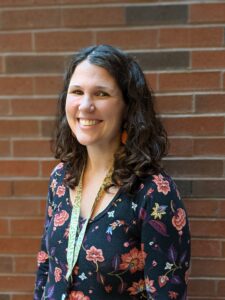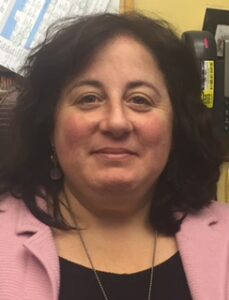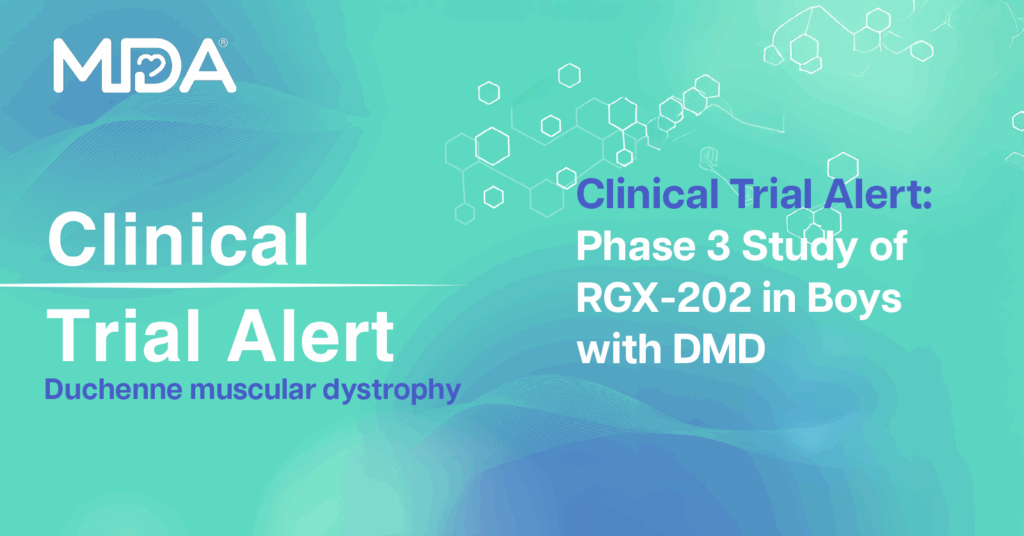
What Do Genetic Counselors Do?
By Jason Henninger | Wednesday, September 13, 2023
When you’re considering genetic testing, you’ll meet with a genetic counselor.
At its core, genetic counseling is about empowering individuals and families with knowledge to make well-informed decisions about their health. To gain a better understanding of the services genetic counselors provide to families affected by neuromuscular diseases, we spoke to genetic counselors Jordan Bontrager, MS, CGC, of the University of Rochester Medical Center, and Elicia Estrella MS, LCGC, of Boston Children’s Hospital.
Why do I need a genetic counselor?
Many neuromuscular diseases are genetic, which means they are caused by a change or mutation in a specific gene that may be inherited from one or both parents. Genetic testing helps identify and diagnose genetic diseases, including neuromuscular diseases.
There are several reasons genetic testing is becoming more common for diagnosing neuromuscular diseases:
- Getting a diagnosis through genetic testing may avoid painful or invasive diagnostic tests.
- Having a genetic diagnosis can help doctors understand how the disease might progress and determine the most effective treatment plan.
- A genetic diagnosis may be required to be eligible for new therapies and clinical trials.
- Genetic testing helps determine the inheritance pattern of a disease and who else in a family may be at risk for the disease.

Jordan Bontrager, MS, CGC, is a genetic counselor at the University of Rochester Medical Center.
“Seeing a genetic counselor can help ensure that genetic testing is something that you want to do,” Jordan says. “It’s important to be sure that you understand exactly what you’re signing up for and the implications for not only yourself from a diagnostic and prognostic perspective but also the impact that it may have on other people in the family. For example, we might see a young boy who’s referred to our clinic with a suspected Duchenne muscular dystrophy (DMD) diagnosis, and we would coordinate the genetic testing for that. I would discuss that diagnosis with the family, and I’d also communicate the risk for the mother to be a carrier for DMD and what that means if she has other children.”
Genetic counselors work with individuals and their families to give them the information they need to make informed decisions. This can involve helping people understand medical terminology, evaluating test results, connecting them with resources, and developing individualized plans for managing risks or conditions in a way that is safe and tailored to each person.
Typically, a doctor will provide a referral to a genetic counselor. Genetic counseling visits may be virtual or in person. At neuromuscular clinics, such as MDA Care Centers, individuals may be able to see a neurologist and a genetic counselor in one visit.
What happens at a genetic counseling visit?

Elicia Estrella MS, LCGC, is a genetic counselor at Boston Children’s Hospital.
“I can see patients in person or virtually for anything that comes up during their neuromuscular visits — be it to discuss testing, testing on siblings or family members, or clinical trials,” Elicia says. “We may touch base on family planning to help the families if they’re interested in doing prenatal testing. We may discuss what the testing entails, the pros and cons, and take a family history to make sure there’s nothing else that we should be looking for.”
Patients and their families often have many questions, and genetic counselors can help provide the information they need. What does the genetic testing process look like? How long does it take to get results? What do the results mean for the rest of the family or children a couple hopes to have? What will it cost?
Cost is a common concern, and genetic counselors can help families learn if genetic testing is covered by their insurance. “Insurance policies can differ greatly in what they feel is medically necessary,” Jordan says. “But there’s been a shift toward getting a lot more approvals than we used to. Genetic testing has become more standard of care.”
Genetic counselors also keep up to date on low-cost and no-cost genetic testing programs, many of which are offered by medical genetic testing companies or patient advocacy organizations. “There are more affordable testing options than there used to be,” Jordan says.
Genetic counselors support families’ decisions
Genetic counselors can play an important role in family planning for families that have an inheritable genetic disease. Elicia emphasizes that a genetic counselor’s goal is to help families make the most informed decision possible rather than to tell parents what to do with the information they share.
“I think that’s maybe the biggest misconception about us — that we’re here to direct patient family planning decisions. And that’s certainly not the case,” Jordan says.
When a couple understands the risks of passing on an inherited genetic disease, they can be better prepared to consider their family planning options and, if they choose, welcome a child of any abilities. “When a baby is born, even if they’re going to be affected by a genetic condition, it is a happy occasion for the parents and their extended families,” Elicia says.
“We really try to be as nondirective as possible,” Jordan adds. “We give our patients the information they need to make a decision that’s best for them and their families. Sometimes it’s just a matter of arming our patients with information.”
Next Steps and Useful Resources
- Watch MDA’s webinar on Genetic Testing and Counseling in Neuromuscular Disease.
- Take action to support increased access to genetic counselors.
- Stay up-to-date on Quest content! Subscribe to Quest Magazine and Newsletter.
TAGS: Featured Content, Genetic Testing, Healthcare, Insurance, MDA Care Centers
TYPE: Blog Post
Disclaimer: No content on this site should ever be used as a substitute for direct medical advice from your doctor or other qualified clinician.




